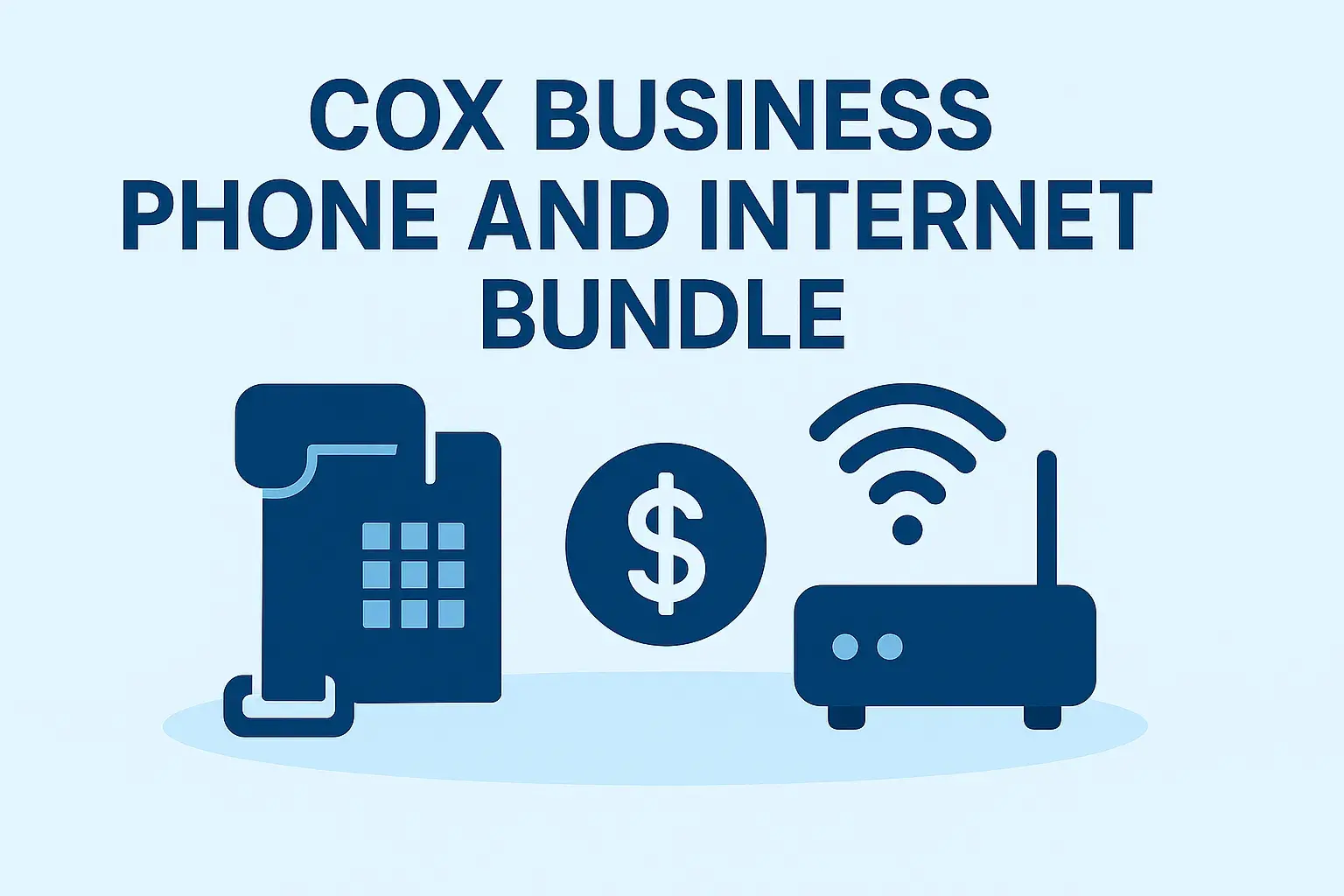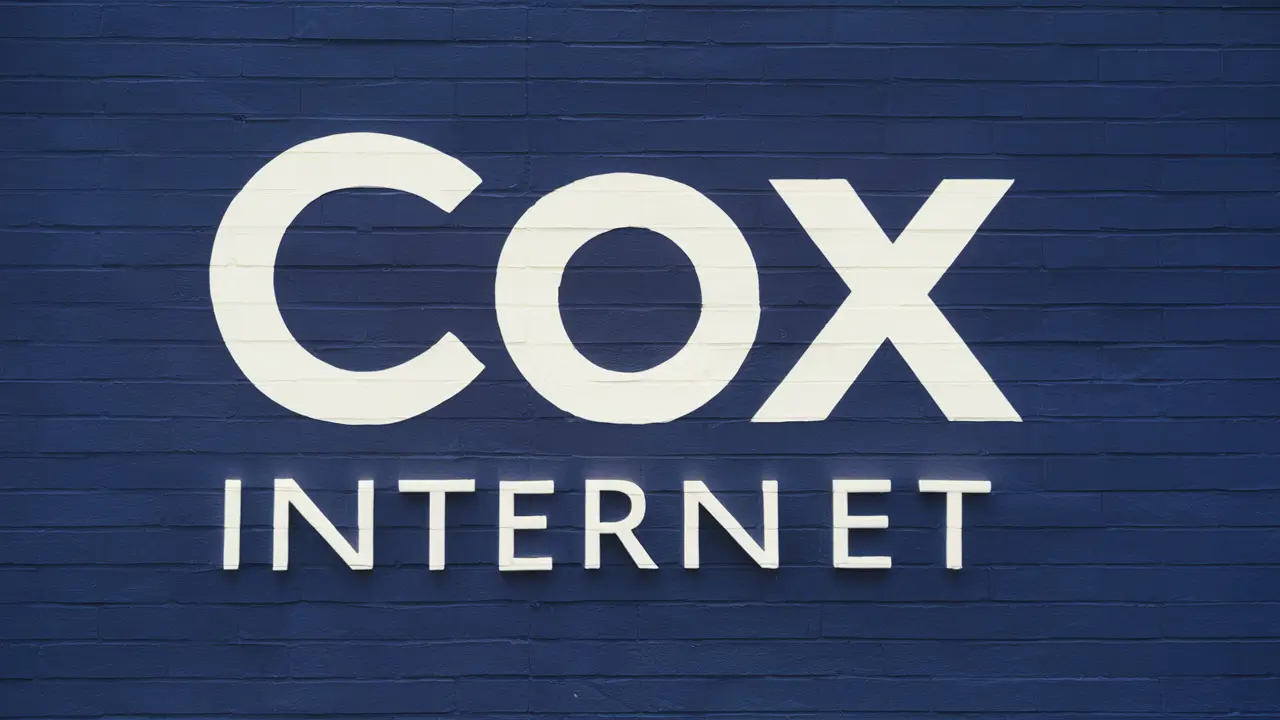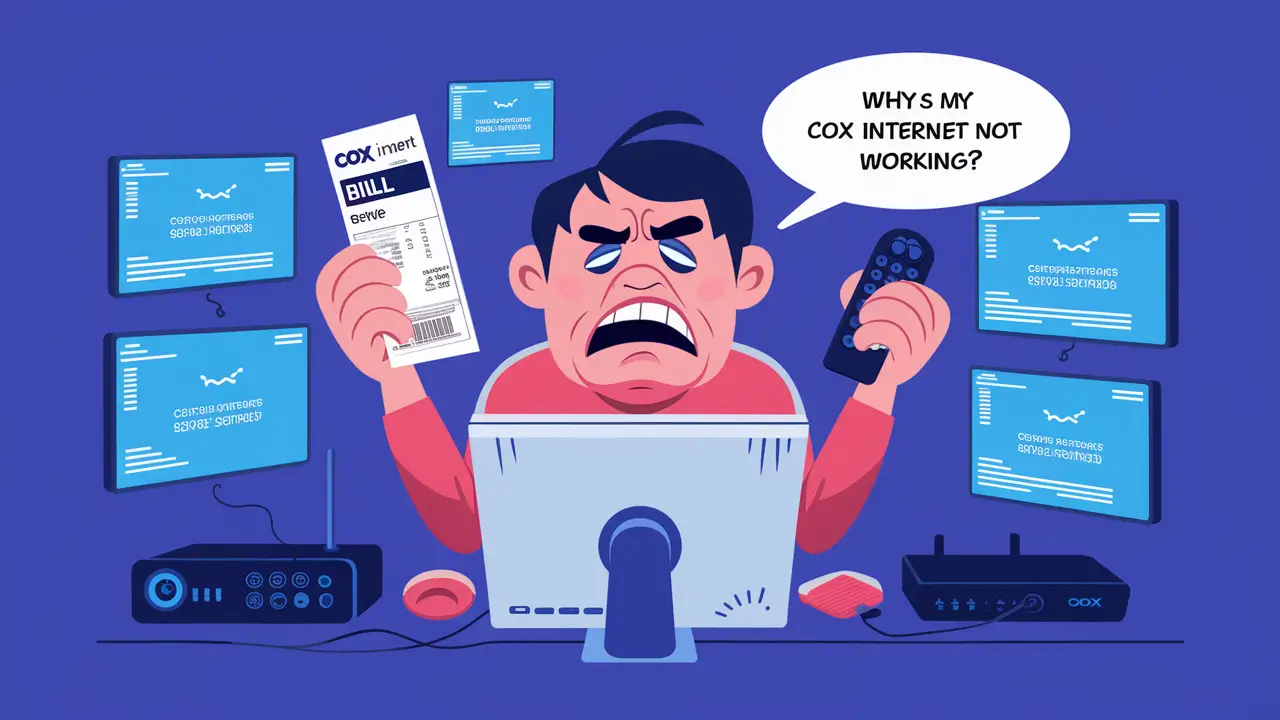
Discover the true cost of Cox Internet plans in 2025. This comprehensive guide breaks down pricing, speeds, and hidden fees to help you find the most affordable and suitable Cox internet package for your needs, saving you money and frustration.
Understanding Cox Internet Pricing
Navigating the world of internet service provider pricing can often feel like deciphering a complex code. Cox Communications, a major player in the broadband market, is no exception. When you ask, "How much is Cox Internet?", the answer isn't a single, simple figure. Instead, it's a dynamic range influenced by a variety of factors, including the specific plan you choose, your geographic location, current promotions, and any additional services or equipment you opt for. In 2025, Cox continues to offer a tiered structure of internet plans designed to cater to diverse user needs, from basic browsing to heavy streaming and online gaming. Understanding this pricing structure is the first crucial step in making an informed decision and avoiding unexpected charges.
Cox's pricing model generally revolves around speed tiers. The faster the internet speed you require, the higher the monthly cost will typically be. However, it's not just about raw speed. Cox also categorizes its plans based on data allowances, although many of their higher-tier plans now offer unlimited data. Furthermore, the introductory or promotional pricing often differs significantly from the standard, non-promotional rates. This means that while you might see an attractive low price advertised, it's essential to understand how long that promotional period lasts and what the price will be once it expires. This guide aims to demystify these complexities, providing you with a clear picture of what you can expect to pay for Cox Internet in 2025.
We will delve into the specifics of their most popular plans, analyze the variables that can affect your bill, explore potential savings through promotions and discounts, and shed light on often-overlooked fees and equipment rental costs. By the end of this comprehensive exploration, you'll be well-equipped to determine the precise cost of Cox Internet for your household and make a choice that aligns perfectly with both your connectivity needs and your budget.
Cox Internet Plans and Speeds in 2025
Cox offers a spectrum of internet plans, each designed to meet different bandwidth demands. The core differentiator among these plans is the download and upload speed, measured in Megabits per second (Mbps). Understanding these speeds is crucial for determining how well a plan will perform for your specific online activities. For instance, basic web browsing and email typically require lower speeds, while streaming high-definition video, online gaming, or supporting multiple devices simultaneously necessitates much higher bandwidth.
Cox Internet Plans: A 2025 Overview
In 2025, Cox's plan offerings can be broadly categorized into several tiers, often marketed with catchy names that hint at their performance capabilities. While specific plan names and exact speeds can vary slightly by region due to network infrastructure and local competition, the general structure remains consistent. Here's a look at typical plans you might encounter:
Entry-Level Plans (e.g., Cox Internet Starter, Essential)
These plans are designed for users with modest internet needs. They are suitable for single-person households or those who primarily use the internet for basic tasks such as checking email, browsing websites, and occasional social media use. Speeds in this tier typically range from 25 Mbps to 100 Mbps download. Upload speeds are often significantly lower, which can impact video conferencing or uploading large files. These plans usually come with data caps, though Cox is increasingly offering unlimited data even at lower tiers in some areas.
Estimated Monthly Cost (Promotional): $30 - $50
Estimated Monthly Cost (Standard): $50 - $70
Mid-Tier Plans (e.g., Cox Internet Preferred, Advanced)
These plans offer a significant step up in performance and are ideal for families or households with multiple users who engage in more demanding activities. This includes streaming HD content on multiple devices, online gaming, and moderate file downloads. Speeds in this range typically fall between 100 Mbps and 500 Mbps download. Upload speeds also see a considerable improvement, making them more suitable for video calls and uploading content. Data allowances are often higher, and some plans may offer unlimited data.
Estimated Monthly Cost (Promotional): $50 - $75
Estimated Monthly Cost (Standard): $70 - $95
High-Tier Plans (e.g., Cox Internet Ultimate, Gigablast)
For power users, gamers, streamers of 4K content, and households with a large number of connected devices, these plans are essential. They offer the highest speeds available from Cox, often reaching 500 Mbps up to 1 Gbps (1000 Mbps) download. Upload speeds are also robust, crucial for tasks like live streaming, large file transfers, and professional remote work. These plans almost always come with unlimited data, ensuring no throttling or overage charges, regardless of your usage.
Estimated Monthly Cost (Promotional): $70 - $100
Estimated Monthly Cost (Standard): $95 - $130+
Speed vs. Cost: Finding the Balance
The relationship between speed and cost is the most direct factor in determining how much Cox Internet will cost you. However, it's crucial to assess your actual needs realistically. Overpaying for internet speeds you don't utilize is a common pitfall. Conversely, opting for a plan that's too slow can lead to frustration, buffering, and a poor online experience.
Example Scenario:
- A single student primarily using Wi-Fi for research and occasional Netflix viewing might find a 100 Mbps plan sufficient and cost-effective.
- A family of four that streams Netflix and Disney+ in HD, plays online games, and has multiple smartphones and laptops connected would likely benefit from a plan offering 300-500 Mbps.
- A remote worker who frequently participates in video conferences, uploads large project files, and has a smart home ecosystem with numerous connected devices would be best served by a gigabit plan.
It's also important to consider the upload speed. While download speed dictates how quickly you receive data, upload speed determines how quickly you send data. For activities like video conferencing, live streaming, or uploading large files to cloud storage, upload speed is critical. Some of Cox's lower-tier plans may have very limited upload speeds, which can be a bottleneck for these activities.
Data Allowances in 2025
Historically, many internet plans, including those from Cox, came with monthly data caps. Exceeding these caps would result in throttling (slowed speeds) or overage charges. However, in 2025, there's a noticeable trend towards offering unlimited data, especially on mid-tier and high-tier plans. This is partly driven by increased competition and the growing demand for data-intensive activities like 4K streaming and cloud gaming. Always verify the data allowance for the specific plan you are considering in your area. If a plan has a data cap, understand what it is and how much data your household typically consumes to avoid unexpected costs.
Factors Influencing Cox Internet Cost
Beyond the advertised speed tiers, several other elements can significantly impact the final monthly bill for Cox Internet. Understanding these variables is key to accurately estimating your total expenditure and identifying potential areas for savings. These factors range from your geographical location to the duration of your contract and the presence of bundled services.
Geographic Location and Availability
Internet pricing is not uniform across the country. Cox operates in specific regions, and the cost of their services can vary based on local market conditions, competition, and the cost of infrastructure deployment in that area. For instance, internet in a densely populated urban area might be priced differently than in a more rural or suburban region where Cox has invested heavily in expanding its network. This means that the exact price you see advertised might not be precisely what you pay if you live in a different service area.
Tip: Always enter your specific address on the Cox website to get the most accurate pricing and plan availability for your location.
Promotional vs. Standard Pricing
This is perhaps the most significant factor influencing perceived cost. Cox, like most ISPs, heavily relies on introductory promotional pricing to attract new customers. These promotions can offer substantial discounts for the first 12, 18, or 24 months of service. While appealing, it's crucial to be aware of the "regular" or standard pricing that kicks in after the promotional period ends. Failing to account for this can lead to sticker shock when your bill increases significantly after the initial contract term.
Example: A plan advertised at $49.99/month for 12 months might jump to $79.99/month thereafter. Understanding this difference is vital for long-term budgeting.
Contract Length and Commitment
Cox often offers lower monthly rates for customers who sign a long-term contract, typically 1-2 years. Committing to a contract usually locks in a specific price for the duration of that term, protecting you from potential price increases during that period. However, breaking a contract early often incurs substantial early termination fees. Alternatively, Cox may offer month-to-month plans, which provide flexibility but usually come at a higher monthly rate and may not be eligible for the best promotional offers.
Bundling Services
Cox is a telecommunications company that offers more than just internet. They also provide TV (Cox Contour) and home phone services. Bundling these services together can often lead to significant cost savings compared to subscribing to each service individually. For example, a bundle including internet, TV, and phone might be cheaper per service than just the internet plan alone. However, this also means a higher overall monthly bill, and you need to ensure you are getting value from all the bundled components.
Consider: If you don't use or need TV or phone services, unbundling might be more cost-effective, even if it means paying a slightly higher rate for internet alone.
Equipment Rental Fees
To access Cox's internet service, you'll need a modem and potentially a router. Cox offers equipment rental options, which are typically included in the monthly bill. These rental fees can add $10-$20 or more to your monthly cost, depending on the equipment. For customers looking to save money in the long run, purchasing your own compatible modem and router can be a wise investment. This upfront cost is often recouped within a year or two through avoided rental fees. Ensure any purchased equipment is on Cox's approved list to guarantee compatibility.
Additional Fees and Surcharges
Beyond the base plan price and equipment rental, Cox bills may include various regulatory fees, surcharges, and taxes. These can include things like:
- Internet Infrastructure Surcharge
- Broadcast TV Fee (if bundled with TV)
- Equipment Surcharge
- State and Local Taxes
While these are often unavoidable, understanding what they are can help you scrutinize your bill and ensure you aren't being overcharged. These fees can add anywhere from a few dollars to over $10-$15 to your monthly bill, depending on your location and services.
Cox Internet Promotions and Discounts
Cox actively uses promotions and discounts to attract new subscribers and retain existing ones. These offers can significantly reduce the monthly cost of internet service, making it more affordable. However, it's crucial to understand the terms and conditions associated with these deals to avoid surprises down the line. The most common types of promotions include introductory pricing, bundle discounts, and loyalty offers.
Introductory Pricing Offers
As mentioned earlier, introductory pricing is Cox's primary tool for attracting new customers. These offers typically provide a heavily discounted rate for the first 12, 18, or 24 months of service. The advertised low prices for Cox Internet plans are almost always these introductory rates. For example, a plan that normally costs $80 per month might be advertised for $49.99 for the first year.
Key Considerations for Introductory Offers:
- Duration: Always clarify how long the promotional price is valid.
- Post-Promotion Rate: Know the exact standard price that will apply after the promotion ends.
- Eligibility: These offers are typically for new customers or those who haven't been a Cox subscriber for a specific period (e.g., 90 days).
- Contract Requirements: Often, these deals require signing a long-term contract.
Bundle and Save Discounts
Cox encourages customers to bundle their internet service with other offerings like TV (Contour) and home phone. When you combine multiple services, Cox often provides a "bundle and save" discount, making the overall cost of multiple services lower than if purchased separately. These discounts can be substantial, sometimes saving you $20-$50 or more per month on your total bill.
Example: A standalone internet plan might be $70, but an internet + TV bundle could be priced at $90, effectively giving you TV service for only $20 extra.
Pros of Bundling:
- Potential for significant monthly savings.
- Consolidated billing from a single provider.
- Access to a wider range of entertainment and communication services.
Cons of Bundling:
- Higher overall monthly bill, even with savings.
- May pay for services you don't fully utilize.
- Less flexibility if you want to switch providers for individual services later.
Low-Income and Government Assistance Programs
Cox participates in government-funded programs designed to make internet service more accessible and affordable for low-income households. The most prominent of these is the Affordable Connectivity Program (ACP), which provides a discount of up to $30 per month (or up to $75 per month for eligible households on Tribal lands) towards internet service and potentially a one-time discount on a connected device. Cox often advertises plans that are effectively free or very low cost when combined with the ACP discount.
Eligibility for ACP typically includes:
- Participation in federal assistance programs like SNAP, Medicaid, SSI, or housing assistance.
- Household income at or below 200% of the federal poverty guidelines.
Cox also may offer its own low-income plans or discounts in certain areas. It is always advisable to check the Cox website or contact their customer service to inquire about eligibility for these programs.
Military and Student Discounts
In some regions, Cox may offer specific discounts for military personnel or students. These discounts can be a percentage off the monthly bill or a fixed dollar amount. Availability and terms vary, so it's best to inquire directly with Cox customer service if you fall into one of these categories.
Loyalty and Retention Offers
Existing Cox customers who are considering switching to a competitor may be eligible for loyalty or retention offers. These are discounts or upgrades provided to keep you as a subscriber. If your contract is nearing its end, or if you've received offers from other providers, contacting Cox's customer retention department might yield a better deal than what's publicly advertised.
Tip: Be prepared to negotiate. Mentioning competitor offers can often lead to improved pricing or service upgrades.
How to Find and Maximize Discounts:
- Visit the Cox Website: Look for "Deals," "Promotions," or "Offers" sections.
- Enter Your Address: Always check for local offers specific to your service area.
- Call Cox Customer Service: Directly ask about current promotions, bundle deals, and any available discounts (e.g., ACP, military).
- Read the Fine Print: Understand the duration, terms, and conditions of any promotional offer before signing up.
- Negotiate: Especially when your contract is ending or if you have competing offers.
By actively seeking out and understanding these promotions, you can significantly reduce the monthly cost of your Cox Internet service.
Understanding Cox Fees and Equipment Costs
When calculating the total cost of Cox Internet, it's essential to look beyond the advertised monthly plan price. Several additional fees and equipment costs can add to your bill, sometimes substantially. Being aware of these charges upfront will help you avoid surprises and budget more accurately. These include installation fees, modem/router rental costs, and various surcharges.
Installation Fees
Cox may charge an installation fee for setting up your internet service. This fee can vary depending on whether you opt for professional installation by a Cox technician or choose a self-installation kit. Professional installations are generally more expensive but ensure the service is set up correctly by an expert. Self-installation kits are typically cheaper or sometimes free, but require you to do the setup yourself.
Typical Installation Fees in 2025:
- Professional Installation: $50 - $100 (often waived with certain promotions or contract commitments)
- Self-Installation: $0 - $25 (kit cost, often free with new service)
Tip: Always check if Cox is offering any promotions that waive installation fees, especially for new customers signing up for longer-term contracts.
Modem and Router Rental Costs
To get online, you'll need a modem to connect to Cox's network and a router to create a Wi-Fi network in your home. Cox offers equipment rental services, providing you with a modem, a modem/router combo unit, or a separate router. While convenient, these rental fees add to your monthly bill.
Typical Monthly Rental Fees (2025):
- Modem Rental: $10 - $15 per month
- Modem/Router Combo Unit: $15 - $20 per month
- Wi-Fi Router (if separate): $10 - $15 per month
These costs can add up significantly over time. For example, renting a modem/router combo for $18 per month amounts to $216 per year. If you plan to keep Cox Internet for more than a year or two, purchasing your own compatible equipment can be a more cost-effective solution.
Purchasing Your Own Equipment
You have the option to buy your own modem and router that are compatible with Cox's network. This requires an upfront investment but eliminates the recurring monthly rental fees. When buying your own equipment, ensure it is on Cox's approved modem list to guarantee compatibility and optimal performance. You can usually find this list on the Cox website.
Benefits of Owning Equipment:
- Long-term cost savings.
- More control over your equipment choices and features.
- No need to return equipment if you switch providers.
Considerations:
- Upfront purchase cost.
- Responsibility for troubleshooting and replacing faulty equipment.
- Need to ensure compatibility with Cox's network standards.
A good quality modem might cost between $80-$150, and a reliable router can range from $50-$200, depending on features and performance.
Surcharges, Fees, and Taxes
Cox, like all internet service providers, must comply with various federal, state, and local regulations. These often result in a variety of surcharges and fees appearing on your monthly bill. While these are usually legitimate, they can increase your total cost unexpectedly.
Common Surcharges and Fees:
- Federal Universal Service Fund (USF) Surcharge: Supports universal access to telecommunications services.
- State and Local Taxes: Vary by jurisdiction.
- Cox Administrative Fees: For network maintenance, customer service, etc.
- Regulatory Fees: To cover costs associated with complying with government regulations.
- Equipment Surcharges: If you rent equipment.
These fees can add anywhere from 5% to 15% (or more) to your base monthly service charge. It's important to review your bill carefully to understand each line item. While you can't eliminate most of these, understanding them helps in accurately forecasting your total monthly expense.
Early Termination Fees (ETFs)
If you sign a contract with Cox and decide to cancel your service before the contract term ends, you will likely incur an Early Termination Fee (ETF). These fees are designed to compensate Cox for the lost revenue from your commitment.
Typical ETF Structure:
- Cox often charges a prorated fee, such as $10-$20 for each month remaining on your contract.
- For a 12-month contract with 6 months left, the ETF could be $60-$120.
- For a 24-month contract with 18 months left, the ETF could be $180-$360.
Always read your contract carefully to understand the exact ETF policy. If you anticipate moving or having a change in circumstances that might require early cancellation, consider a month-to-month plan, even if it's slightly more expensive monthly, to avoid a large ETF.
Comparing Cox to Competitors
To truly understand "How much is Cox Internet?", it's essential to see how its pricing and offerings stack up against other major internet service providers (ISPs) in the market. The competitive landscape varies significantly by region, but common competitors include companies like Spectrum, Xfinity (Comcast), AT&T, Verizon Fios, and various smaller regional providers or fiber-optic networks. Each provider has its strengths and weaknesses in terms of pricing, speed, data caps, and customer service.
Price Comparison: Cox vs. Major Competitors (2025 Estimates)
It's important to note that prices fluctuate based on promotions, location, and specific plan details. The following is a generalized comparison for mid-tier plans (around 100-300 Mbps download speeds) for new customers, assuming promotional pricing:
| Provider | Typical Mid-Tier Speed (Mbps Download) | Estimated Promotional Monthly Cost (12 months) | Typical Data Allowance | Notes |
|---|---|---|---|---|
| Cox Internet | 100-300 | $50 - $75 | Often Unlimited (check plan) | Varies by region; contracts common for best pricing. |
| Spectrum | 100-300 | $49.99 - $69.99 | Unlimited | No contracts required; speeds can fluctuate. |
| Xfinity (Comcast) | 100-300 | $50 - $70 | Often 1.2 TB (can upgrade to unlimited) | Similar to Cox; extensive network. |
| AT&T (DSL/Fiber) | DSL: 25-100; Fiber: 300-1000+ | DSL: $55-$75; Fiber: $70-$110+ | DSL: Unlimited; Fiber: Unlimited | Fiber availability is key; DSL speeds are much lower. |
| Verizon Fios (Fiber) | 300-940+ | $65 - $90+ | Unlimited | Fiber-only; excellent speeds but limited availability. |
Note: These are estimates for 2025 and can vary significantly. Always check provider websites with your specific address.
Key Differentiators Beyond Price
While price is a major factor, other elements are crucial when comparing ISPs:
- Technology: Fiber-optic internet (like Verizon Fios and AT&T Fiber) generally offers superior speeds and reliability compared to cable (Cox, Spectrum, Xfinity) or DSL (AT&T). Cable internet is typically faster and more widely available than DSL.
- Speeds: Compare not just download speeds but also upload speeds. Fiber connections usually offer symmetrical upload/download speeds, which is a significant advantage for video conferencing, large file uploads, and gaming.
- Data Caps: While many providers are moving towards unlimited data, some still impose caps. Understand these limits and the associated overage charges or throttling policies. Cox and Spectrum are often more generous with data allowances than Xfinity, for example.
- Contract Requirements: Spectrum is known for its no-contract policy, offering more flexibility. Cox and Xfinity often require contracts for their best promotional pricing.
- Bundling Options: If you need TV and phone services, compare bundle deals. Cox, Spectrum, and Xfinity offer comprehensive bundles. AT&T and Verizon also offer bundles, often with their own TV streaming services.
- Customer Service and Reliability: Reviews and independent studies (like those from J.D. Power or Consumer Reports) can provide insights into customer satisfaction, network reliability, and the quality of customer support for each provider. This is often subjective and can vary by region.
When is Cox the Best Value?
Cox can be a competitive option in several scenarios:
- When Promotions are Strong: If Cox is offering particularly aggressive introductory pricing or bundle deals in your area, it might offer the best initial value.
- When Fiber is Unavailable: In areas where fiber-optic service isn't an option, Cox's cable internet often provides higher speeds than DSL competitors.
- When Bundling is Beneficial: If you need internet, TV, and phone, Cox's bundle packages can sometimes be more cost-effective than subscribing to separate services from different providers.
- When Data is Unlimited: If you are a heavy internet user and Cox offers unlimited data on a plan that fits your speed needs, this can be a significant advantage over competitors with strict data caps.
Conversely, if fiber-optic providers like Verizon Fios or AT&T Fiber are available in your area, they often provide superior performance and value, especially for high-demand users, even if their advertised prices seem slightly higher initially. Always conduct a thorough comparison using your specific address to see which providers and plans are available to you.
Choosing the Right Cox Plan for Your Budget
Selecting the ideal Cox Internet plan involves balancing your household's connectivity needs with your budget. The key is to avoid overspending on unnecessary speeds while ensuring you don't compromise on the performance required for your daily online activities. By following a structured approach, you can make an informed decision that provides the best value.
Step 1: Assess Your Household's Internet Usage
Before looking at any plans, take stock of how your household uses the internet. Consider the following:
- Number of Users: How many people regularly use the internet simultaneously?
- Number of Devices: How many devices (smartphones, tablets, laptops, smart TVs, gaming consoles, smart home devices) are connected to your network?
- Primary Activities: What are the main things you do online?
- Basic Use: Email, web browsing, social media (low bandwidth needs).
- Streaming: HD or 4K video streaming on one or multiple devices (moderate to high bandwidth needs).
- Online Gaming: Requires stable, low-latency connections and decent speeds (moderate to high bandwidth needs).
- Remote Work/Video Conferencing: Needs reliable upload and download speeds, especially for video calls (moderate to high bandwidth needs).
- Large File Transfers: Uploading or downloading large files (high bandwidth needs, especially upload speed).
- Data Consumption: Do you stream a lot of video, download large files, or play online games? If so, you'll consume more data. Check if the plans you're considering have data caps.
Step 2: Understand Cox's Speed Tiers and Their Suitability
Based on your usage assessment, map your needs to Cox's typical speed tiers:
- Entry-Level (25-100 Mbps): Best for 1-2 users, basic browsing, email, and light social media. May struggle with HD streaming on multiple devices or gaming.
- Mid-Tier (100-500 Mbps): Ideal for families, multiple users, HD streaming on several devices, online gaming, and moderate remote work. This is often the sweet spot for many households.
- High-Tier (500 Mbps - 1 Gbps+): For power users, households with many connected devices, 4K streaming, serious online gaming, and heavy file transfers or professional remote work.
Step 3: Identify Current Promotions and Discounts
Cox frequently offers introductory pricing. Visit their website and enter your address to see the most current deals. Look for:
- New Customer Discounts: These significantly lower the initial monthly cost.
- Bundle Deals: If you need TV or phone, bundling can save money.
- Affordable Connectivity Program (ACP): If eligible, this can drastically reduce your bill.
Crucially, note the duration of the promotion and the standard price that applies afterward.
Step 4: Factor in All Costs
Don't forget to add potential costs beyond the advertised plan price:
- Installation Fees: Check if they apply and if promotions waive them.
- Equipment Rental Fees: Calculate the monthly cost of renting a modem/router. Consider purchasing your own equipment if you plan to stay with Cox long-term.
- Surcharges and Taxes: These can add 5-15% to your bill.
Example Calculation for a Mid-Tier Plan:
Let's say a 300 Mbps plan is advertised at $60/month for 12 months.
- Promotional Price: $60/month
- Installation Fee: $50 (waived with 2-year contract)
- Equipment Rental (Modem/Router Combo): $18/month
- Estimated Surcharges/Taxes: ~$8/month (approx. 10% of base price)
Total Monthly Cost (during promotion): $60 + $18 + $8 = $86/month
Total Monthly Cost (after promotion, assuming price jumps to $85): $85 + $18 + $11 (approx. 13% tax on higher base) = $114/month
If you buy your own modem/router ($150 upfront), you save $18/month, reducing the total to $68/month during the promotion and $96/month after.
Step 5: Compare with Competitors
Use the information gathered to compare Cox's total estimated cost (including all fees) with offers from other ISPs available in your area. Prioritize providers offering similar speeds, unlimited data, and no-contract options if flexibility is important.
Step 6: Make Your Decision and Read the Fine Print
Once you've identified the plan that best meets your needs and budget, carefully review the service agreement. Pay close attention to:
- Contract length
- Early termination fees
- Data allowance and overage policies
- Price increases after the promotional period
- Details of any bundled services
By taking these steps, you can confidently determine "How much is Cox Internet?" for your specific situation and choose a plan that offers the best combination of performance, features, and affordability.
Conclusion
Determining the precise cost of Cox Internet in 2025 requires a nuanced understanding that goes beyond headline prices. While introductory offers can make plans appear remarkably affordable, the true monthly expense is shaped by factors including your chosen speed tier, contract length, equipment rental fees, and various surcharges. Mid-tier plans, offering speeds between 100-300 Mbps, typically range from $50-$75 per month during promotional periods, but can climb to $70-$95 or more once these initial discounts expire. High-speed plans, reaching gigabit speeds, will naturally command higher prices, often starting around $70-$100 on promotion and exceeding $100-$130 standard. Remember to factor in potential installation fees, the recurring cost of modem/router rentals (which can be offset by purchasing your own equipment), and unavoidable taxes and fees that can add 5-15% to your bill. By diligently assessing your household's internet usage, comparing Cox's offers with those of competitors, and scrutinizing all associated costs, you can select a plan that perfectly aligns with both your connectivity requirements and your financial goals. Always verify pricing with your specific address and read the fine print to avoid unexpected charges.






